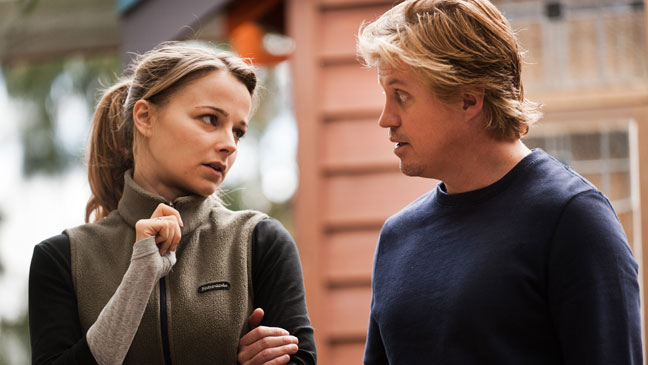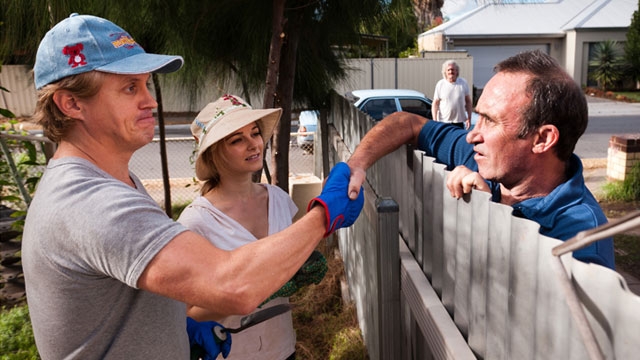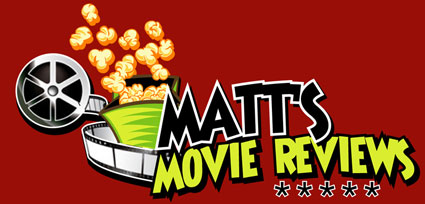Rolf de Heer is one of Australia’s most respected and lauded filmmakers. Since his boundary pushing breakthrough Bad Boy Bubby, the Dutch born Australian raised de Heer has impressed with a versatile filmography that includes the multi award winning drama The Tracker and the equally lauded Aboriginal language release Ten Canoes.
De Heer’s latest film currently playing in selected cinemas is The King Is Dead!, a black comedy about an “evolved” suburban couple Max (Dan Wyllie) and Therese (Bojana Novakovic) who move into their new home only to contend with the neighbours from hell.
Matt’s Movie Reviews spoke to Rolf de Heer about making The King is Dead!, the art of melding suspense with comedy and whether a future in hip hop awaits the multi award winning director.
Enjoy! (Mild spoilers)
The King is Dead is influenced through your own experiences with rowdy neighbours. So who were these neighbours that inspired you to write this movie?
(Laughs) No, it’s not so much that is what happened. I’ve had many experiences with rowdy neighbours, ok? Different sorts of rowdy neighbours and a lot of people I know have had different experiences with rowdy neighbours. So I had in my head the capacity to access lots of bits and pieces, stuff that I have experienced and stuff that I knew of and it’s not that is what inspired me to write the film.
I basically was in a position where I had the opportunity to write that…I won’t specify the subject matter, and it was not just an opportunity. I needed to write something, to deliver something and it could be anything I wanted to write. I didn’t have to make it, only to write something. That was the position I found myself in.
Where I was living was very suburban in a way and wandering around the backyard thinking about what to write about, surrounded by neighbours that I began to think about that, and thinking “Ok, there you go! There’s something interesting.” I began to use the experiences that I had and that I heard of to form a sort of a foundation for a good start. Then the film escalates from there.
You begin to ask the questions: “What if?” “What next?” “What would have happened?” “What could have happened?” And then it starts to form itself as a work, most of which is fictitious but yes, it is roundly and soundly informed by experience and yes, there are things that actually sort of happened. But there are other things that of course never happened. The majority of it never happened and there’s nothing in it to pick that is exactly as it happened, because it’s film. Real life of course is boring compared to film.
I’ll give you a great example in a way of this. The whole Maori sequence which is very substantial in the film, comes from one thing I saw once, briefly, which was two Maori’s get out of a car with baseball bats and sort of hitting the baseball bats into their hands quite aggressively, and heading into the person, who at that point, was my neighbour on one side.
So I said, “Ok. I don’t much go for this neighbour because he’s this and that, but I wouldn’t wish this upon him, even though if they got rid of him it wold be a convenience!” (laughs) So I’m about to ring the cops, but before I could complete dialling I heard all of this laughter which was the Maori’s and the neighbour, and I thought “Ok. They’re mates. Fine. End of story.”
For some reason just that image of the Maori’s getting out of the baseball bats obviously was imprinting in my mind. From that and only that comes that entire sequence, which of course is completely imaginary. But it’s a good illustration of how this stuff works.
 |
"Decent people have evolved to that point of becoming civilised, and that’s gone too far. It means we can’t deal, we can’t compete with the animals next door in the urban jungle." - Rolf de Heer |
Max and Therese represent what is described in the movie as the “evolved suburban couple.” Can you describe this theory in further detail?
(Laughs) Let me think about it a bit…What Max is saying is as we take on the veneers and the actualities of what we might consider to be civilisation, we’re increasingly less able to deal with people who don’t follow those rules.
Max puts it in terms of evolution. It’s obviously not physical evolution, but in a sense you could say that it is. Max’s theory at that time he’s espousing is that decent people have evolved to that point of becoming civilised, and that’s gone too far. It means we can’t deal, we can’t compete with the animals next door in the urban jungle. That’s how he puts it. Because they’re smart. They’ve got the cunning and they’ve got the ruthlessness that we don’t have anymore.
So we’ve evolved too far because we are now at an evolutionary disadvantage as a consequence. Our brains will not save us from the barbarians.
The characters always talk about having patience and tolerance. They definitely live by the rule of “love thy neighbour” and they give the King character so many chances in the film, but there is an issue of mistrust towards him. Do you think that kind of fear has grown even further in suburban areas the more populated our cities and the closer we live next to one another?
Look, I think the fear of difference is strong in people and when you have a couple such as Max and Therese living next door to a sub-culture they don’t begin to understand, there’s going to be a mistrust.
I think you picked it correctly. It’s there. No matter how many times they say we have got to be patient, yes it’s there. It has to be because they don’t know it. They don’t know how that behaviour functions and what it can lead to.
The film was very well cast. Did you have specific actors in mind when writing your screenplays?
Sometimes, and I quite like it when I do, if I know those people are going to play the role. Because you can write to what you know of that actors strengths, and so on.
In this particular case there was only one actor who I had any sense of, and that was only about half way through the process of writing when it occurred to me that Gary Ruddell would make a great King, and that’s all that happened. But then Gary Ruddell, who I had only met once 5 years before, began to inhabit my writing space and I just had to give over to it and he became King as far as I was concerned.
For the rest of it the casting was a very difficult process. To make all of the dynamics work, the threat dynamics, the couple of Max and Therese who were very specific and very strong…it really has to work so they’re believable as a couple otherwise it doesn’t really work.
It wasn’t difficult because there aren’t good actors around, because there are many. But making them all fit together, that’s the trick. Any actors for any of the roles could play it beautifully, but how to match them was really where I spent the time, the consideration, the thinking, the watching, the talking in the casting process.
 |
"I think the fear of difference is strong in people and when you have a couple such as Max and Therese living next door to a sub-culture they don’t begin to understand, there’s going to be a mistrust." - Rolf de Heer |
The film did a great job in generating tension and creating laughs at the same time. What’s the trick in melding suspense and comedy? Is it in the screenplay? Is it in post production?
I don’t have a simple answer for that, Matt. It is what you hope to be doing. The screenplay is 50% the making of any film for me. With the writing of it, half the film is made. So obviously it has to be possible from the screenplay.
The notion of that was strong in my mind when we worked on set, and the question of grounding the laughs as genuinely as you can and not having any easy humour, because the easy humour undoes any sort of tension more easily than anything else does.
Again, there is another example: the sequence where Max goes out to paint the slogan on the fence, we shot that and it was very funny. And then we re-shot it a couple of nights later because it was too easily funny, so we changed the wardrobe because that was a contributing factor and just pulled his performance in a slightly different direction, and it still is funny but it has a tension. It wasn’t thrown away by an easy laugh.
Comedy is not a genre you usually deal with, with The King is Dead your second foray after Dr. Plonk. You are quite good with comedy, so can we expect more from you in the future?
Um…it’s hard to tell! Not with everything, I don’t know if Alexandra’s Project has much humour in it, but I do try and inject…you know, Ten Canoes had a lot of humour in it. And from my perspective Bad Boy Bubby had a lot of humour in it.
So I do think about it many times when it’s appropriate, and I guess with age I’m getting lighter! (laughs) Yeah, you might! Yeah.
You composed quite the vulgar rap song for the film. How long did it take for you to put it together and can you foresee a future in hip hop?
(laughs) Graham Tide who is the composer, he put the bet down and I knew I had to do it because it is a very low budget film and to get a half a decent something that suits may cost too much. But also those things for me they fit with the character, so it fits with the character of Shrek (Anthony Hayes) and it has to be offensive, and vulgar, and so on because in the end it wears them out and that barrage of profanity wears you out.
So I went and sought advice, because I knew nothing about it, from a bloke at a specialty records store and I said I only want to samples because that’s enough. So he sold he a couple of CDs of gangster rap, which I then listened to for a bit and I thought “yeah, I think I get it.” (laughs) Then it took me two days, because the main problem was I had to learn how to rap. You can’t write the rhythm of the words unless you perform them, so I had to sort of lock myself up so nobody could see me or hear me because of it was too bizarre.
After I had it and I could perform it, I went to the production office and said: “Listen to this. See if this works.” So I began to perform it, and of course they fell about laughing completely beyond themselves (laughs). So obviously it did work and no, I don’t think I’ll end up with a career as a rap writer. Although if I am offered some work, I’ll be tempted.
|
